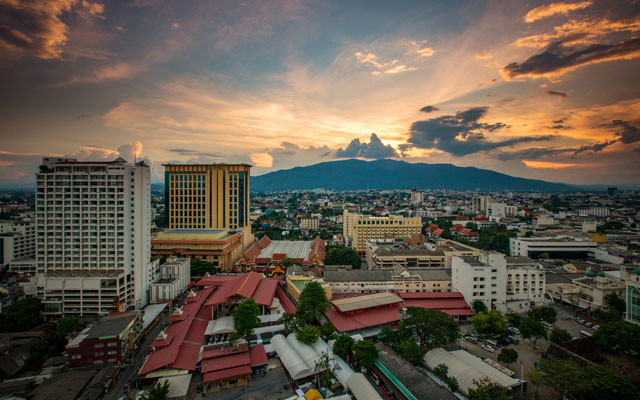The business travel market in Asia needs to step up its game to tap into the rapidly rising number of Muslim business travellers, or risk losing out on a slice of the pie.
At the International MICE Conference and Forum 2019 in Chiang Mai, Korakod Kanongnuch, president of Thailand Halal Tourism Association (THAT), said: “Muslim travellers represent a big piece of cake, and everyone wants a share. With this, the Muslim MICE market is also growing, and the industry needs to grow with it to keep up with demand.”

By 2020, South-east Asia will welcome more than 18 million Muslim visitor arrivals – according to the Mastercard-CrescentRating Global Muslim Travel Index 2018 – accounting for 15 per cent of total visitor arrivals in the region.
Senior lecturer Ismah Osman of Malaysia’s Universiti Teknologi Mara, added: “Muslim travellers are a very powerful segment now and in the future, and the travel industry needs to realise that.”
And Thailand is at the forefront, where it has been positioning itself as a Muslim-friendly destination, while rolling out initiatives to prep the industry for the boom. This year, the Ministry of Sports and Tourism hosted a series of halal-tourism training sessions with tour operators, tourism-related government and private agencies. The Institute of Asian Studies at Chulalongkorn University has also been recruited to carry out research into specific market demands.
Ismah believes that the Muslim MICE market presents “a huge amount of potential”, pointing to the northern Thai province of Chiang Mai as an example of how a destination can become more Muslim-friendly. It also helps that the province is also preening itself as a prime Muslim MICE hub, in line with 7 Wonders of Lanna, a campaign to drive MICE events in the region.
Dullah Jehdeng, owner and managing director of Nanyeeya Entertainment Travel, elaborated: “Chiang Mai has a strong Muslim culture and we have many places that serve diverse Muslim food, as well as halal and Muslim-friendly hotels.”
Currently, there are 12 Muslim-owned hotels in Chiang Mai and THAT is carrying out educational training with a range of tourism-related organisations. Most importantly, Korakod shared that halal food advisors are on hand to concoct more creative menus at events and conferences.
“Halal food doesn’t have to be just chicken briyani and oxtail soup. We need halal catering companies to join hands with MICE centres. Caterers need to understand clearly how to respect halal food and understand the availability of varied options,” Kanongnuch noted.
Products are also being developed in Chiang Mai to appeal to the Muslim MICE market. This includes Ping Luang village, home to a Thai Muslim community. The community-based tourism project will welcome guests next year, and boasts a bamboo meeting room and a range of community-driven activities – like halal-cooking classes, traditional weaving and fishing – aimed at incentive and teambuilding groups.





















